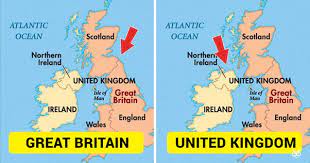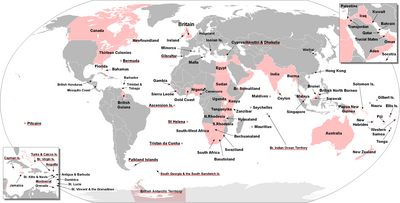The Turning Points That Shaped British History
The United Kingdom, composed of England, Scotland, Wales, and Northern Ireland, has a rich and complex history that spans thousands of years. From the Roman invasion to the rise and fall of empires, the country’s past has shaped its present and continues to influence its future. Understanding the historical roots of the United Kingdom is crucial in order to comprehend its culture, politics, and society.
The history of the United Kingdom can be traced back to ancient times. The island of Britain was first inhabited by Celtic tribes before it was invaded by the Romans in 43 AD. The Roman conquest brought about significant changes in British society, including the introduction of new technologies, infrastructure, and governance systems. Roman influence can still be seen today in the remnants of Roman architecture and the Latin-based language that is spoken in the country.
The Roman Invasion and Its Impact on British Society
The Roman invasion of Britain in 43 AD marked a turning point in British history. Led by Emperor Claudius, the Romans conquered the island and established a province known as Britannia. The Romans brought with them advanced technologies such as roads, aqueducts, and central heating systems, which greatly improved the quality of life for the native Britons.
Roman influence extended beyond infrastructure and technology. The Romans also introduced their culture and customs to Britain, including their language, religion, and legal system. Latin became the language of administration and trade, and Roman law formed the basis of British legal systems for centuries to come.
The legacy of Roman rule in Britain can still be seen today. Many cities in Britain were founded by the Romans and still bear their Latin names, such as London (Londinium) and York (Eboracum). Roman architecture, such as Hadrian’s Wall and Bath’s Roman Baths, are popular tourist attractions that showcase the engineering prowess of the Romans.
The Anglo-Saxon Conquest and the Emergence of England
Following the decline of the Roman Empire, Britain was invaded by various Germanic tribes, collectively known as the Anglo-Saxons. The Anglo-Saxon invasion began in the 5th century and resulted in the formation of several independent kingdoms, including Wessex, Mercia, and Northumbria.
The Anglo-Saxon period was characterized by a decentralized political system, with each kingdom ruled by its own king. However, over time, one kingdom, Wessex, emerged as the dominant power and its king, Alfred the Great, successfully defended England against Viking invasions.
It was during Alfred’s reign that England began to take shape as a unified kingdom. Alfred implemented reforms that strengthened the military and established a system of justice. He also promoted education and learning, which laid the foundation for the development of English literature and culture.
The Norman Conquest and the Establishment of Feudalism
In 1066, England was invaded by William, Duke of Normandy, in what is now known as the Norman Conquest. William defeated the Anglo-Saxon king Harold II at the Battle of Hastings and became the first Norman king of England.
William’s reign marked a significant shift in English society. He introduced feudalism, a social system in which land was owned by a small group of nobles who granted it to vassals in exchange for military service. This system created a hierarchical society with the king at the top and peasants at the bottom.
The Normans also brought with them their own language, French, which became the language of the ruling elite. English remained spoken by the common people but was heavily influenced by French vocabulary and grammar.
The Wars of the Roses and the Rise of the Tudors
The Wars of the Roses were a series of civil wars fought between two rival branches of the Plantagenet dynasty for control of the English throne. The wars lasted from 1455 to 1487 and resulted in the rise of the Tudor dynasty.
The Wars of the Roses were a complex and bloody conflict that tore England apart. The Lancastrians, represented by the red rose, and the Yorkists, represented by the white rose, fought for control of the throne. The conflict ended with the victory of Henry Tudor, who became Henry VII and established the Tudor dynasty.
The Tudor era is often considered a golden age in English history. Under Henry VIII, England experienced a period of stability and prosperity. Henry VIII is best known for his break with the Catholic Church and the establishment of the Church of England. This act, known as the Reformation, had far-reaching consequences for British society and politics.
The Reformation and the Birth of Protestantism in England
The Protestant Reformation, which began in Germany in the 16th century, had a profound impact on England. The Reformation was a religious movement that sought to reform the Catholic Church and led to the birth of Protestantism.
In England, the Reformation was driven by political as well as religious factors. King Henry VIII wanted to divorce his first wife, Catherine of Aragon, but was unable to obtain permission from the Pope. In response, Henry broke with Rome and established himself as the head of the Church of England.
The establishment of the Church of England marked a significant shift in religious power in England. The new church was Protestant in doctrine but retained many Catholic rituals and practices. This compromise allowed Henry to maintain control over religious affairs while appeasing both Protestant and Catholic factions.
The English Civil War and the Triumph of Parliamentary Democracy
The English Civil War, fought between 1642 and 1651, was a conflict between supporters of King Charles I and those who wanted to limit his power. The war resulted in the temporary overthrow of the monarchy and the establishment of a republican government known as the Commonwealth.
The English Civil War was a struggle between Parliament and the monarchy over the balance of power. The Parliamentarians, led by Oliver Cromwell, believed in limited government and the rule of law. The Royalists, on the other hand, supported the divine right of kings and believed in absolute monarchy.
Cromwell’s victory in the Civil War marked a turning point in English history. He abolished the monarchy and established a republic, known as the Commonwealth, with himself as Lord Protector. Although Cromwell’s rule was authoritarian, it laid the foundation for parliamentary democracy in England.
The Industrial Revolution and the Transformation of British Society
The Industrial Revolution, which began in the late 18th century, transformed British society and had a profound impact on the world. It was a period of rapid industrialization and technological advancements that led to the rise of factories, urbanization, and mass production.
The Industrial Revolution brought about significant changes in British society. Traditional industries such as agriculture and cottage industries were replaced by large-scale factories and mechanized production. This led to a shift from rural to urban areas as people moved to cities in search of work.
The Industrial Revolution also had social and economic consequences. The working class faced harsh working conditions and low wages, while the middle class benefited from increased wealth and social mobility. The gap between the rich and poor widened, leading to social unrest and calls for reform.
The Victorian Era and the Expansion of the British Empire
The Victorian era, named after Queen Victoria who reigned from 1837 to 1901, was a period of great change and expansion for Britain. It was during this time that Britain became the world’s leading industrial and imperial power.
Queen Victoria’s reign saw the expansion of the British Empire to its greatest extent. British colonies were established around the world, including India, Australia, Canada, and parts of Africa. The empire provided Britain with vast resources and a global trading network, which fueled its industrial economy.
The Victorian era was also a time of social and cultural change. The rise of the middle class led to the growth of consumer culture and the development of new forms of entertainment, such as music halls and theaters. The era is also known for its strict moral code and emphasis on family values.
World War I and the Decline of British Power
World War I, which lasted from 1914 to 1918, had a profound impact on British society and marked the beginning of the decline of British power. Britain entered the war as a global superpower but emerged greatly weakened.
The war had devastating consequences for Britain. The loss of life was staggering, with over 700,000 British soldiers killed and millions more injured. The war also had a significant economic impact, as resources were diverted to the war effort and industries were disrupted.
The aftermath of World War I saw the rise of new global powers, such as the United States and Germany, which challenged Britain’s dominance. The war also exposed deep divisions within British society, particularly between the working class and the ruling elite.
The Legacy of British History and Its Relevance Today
Understanding British history is crucial in order to comprehend the country’s culture, politics, and society. The United Kingdom’s historical roots have shaped its present and continue to influence its future. From the Roman invasion to the rise and fall of empires, each chapter in British history has left its mark on the country.
The legacy of British history can be seen in various aspects of modern society. The English language, legal system, and political institutions all have their roots in historical events. British culture, from literature to music to art, has been shaped by centuries of history.
Furthermore, understanding British history is relevant to current events and issues. The Brexit referendum, for example, was influenced by debates over national identity and the country’s historical relationship with Europe. The ongoing discussions about devolution and the future of the United Kingdom are also rooted in historical tensions and divisions.
In conclusion, the United Kingdom’s historical roots are essential to understanding its present and future. From the Roman invasion to the decline of British power, each chapter in British history has shaped the country’s culture, politics, and society. By studying and appreciating this rich history, we can gain a deeper understanding of the United Kingdom and its place in the world.





